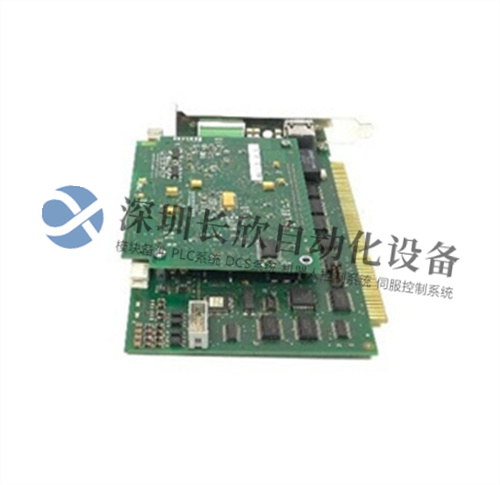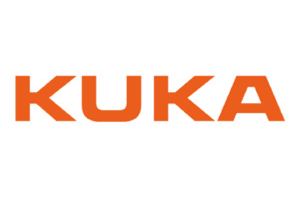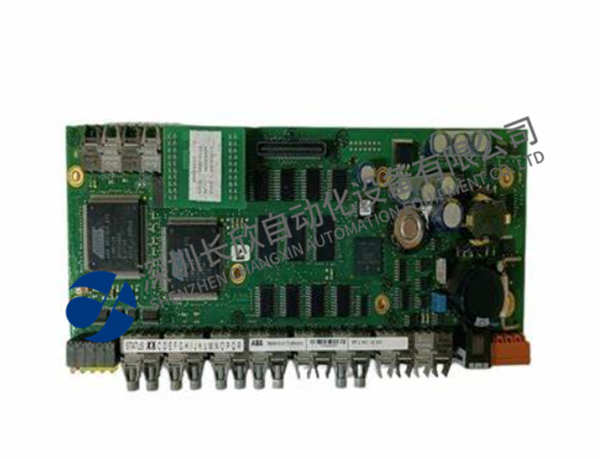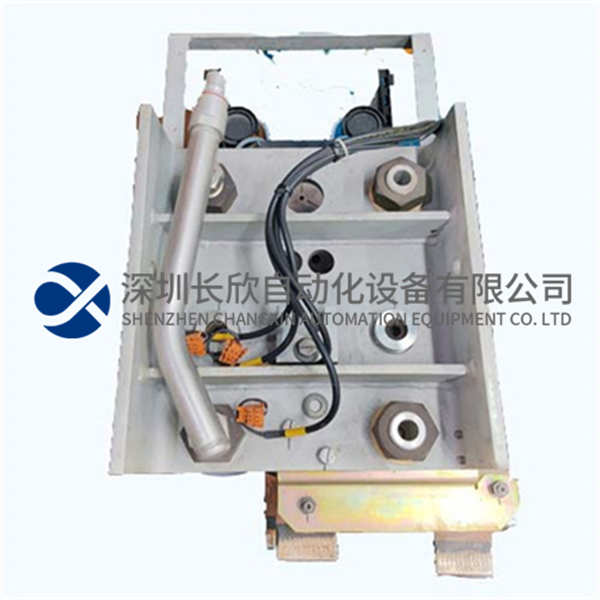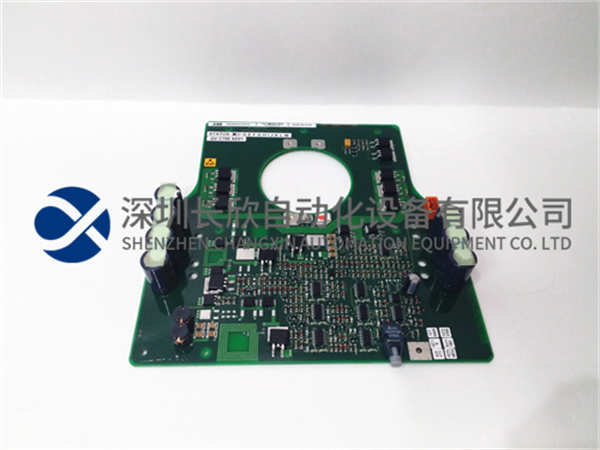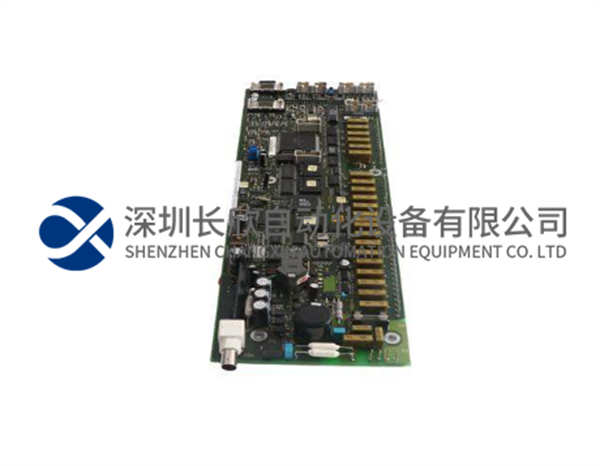描述
一、核心功能
1.高精度运动控制
多轴同步控制:
支持1-16轴实时同步,同步周期≤500μs,适用于多机器人协同作业(如双机器人焊接、多工位搬运),确保运动轨迹的精确跟随(如焊接速度1.5m/min时,轨迹重复精度±0.05mm)。
内置电子凸轮、电子齿轮功能,可实现复杂运动曲线规划(如凸轮分割器替代、飞剪控制),减少机械传动误差。
动态响应优化:
集成前馈补偿、摩擦补偿算法,通过实时调整电机扭矩,减少加速度突变引起的振动,适用于精密装配、打磨抛光等场景(如手机屏幕贴合时,压力波动≤±0.1N)。
2.高精度反馈处理
多传感器支持:
兼容绝对式编码器(如Heidenhain、Sick)、增量式编码器及力/力矩传感器,可实时采集位置、速度、加速度、力/力矩数据,为闭环控制提供精准反馈。
支持双编码器反馈(电机端+负载端),通过负载位置补偿,消除机械间隙、传动误差对精度的影响(如齿轮传动系统的回程误差补偿)。
数据滤波与处理:
内置低通滤波器、卡尔曼滤波器,可抑制传感器噪声、振动干扰,确保反馈信号的稳定性(如在高速运动中,位置信号波动≤±0.001mm)。
3.实时通信与集成
高速工业通信:
EtherCAT主站:连接KUKA伺服驱动器、外部轴,同步周期≤250μs,支持分布式控制架构(如多机器人协同搬运大型工件)。
PROFINET RT/IRT:与西门子S7-1500 PLC协同控制,实现机器人与生产线的无缝集成(如汽车总装线中,机器人与输送带的同步运动)。
OPC UA Server/Client:支持与MES、ERP系统数据交互,实现生产状态实时监控、工艺参数远程下发。
开放接口支持:
提供C/C++、MATLAB/Simulink接口,支持用户自定义算法开发(如高级路径规划、AI视觉集成),满足个性化控制需求。
二、技术参数
参数类别详细规格
处理器Intel Atom x7-E3950(4核1.6GHz,睿频2.0GHz)
内存4GB DDR4(可扩展至16GB)
存储128GB SSD(支持RAID 1冗余)
输入电源24V DC(-15%/+20%),功耗≤80W
控制精度位置精度±0.005mm,速度波动≤±0.03%
环境适应性工作温度0-50℃,湿度≤90%RH(无冷凝),防护等级IP20
尺寸与重量尺寸250mm×200mm×100mm,重量约5kg,支持标准机柜安装或导轨安装
三、典型应用场景
1.汽车制造
车身焊接生产线:
MFC2控制2台KR 16机器人+1台变位机,通过EtherCAT同步实现多工位协同焊接,焊接节拍≤45s/车,焊缝质量符合ISO 5817 A级标准。
集成力/力矩传感器,实时监测焊接压力,自动调整机器人姿态,避免虚焊、过焊问题。
总装车间:
配合视觉引导系统,通过PROFINET通信控制KR 30机器人完成发动机与变速箱的精准装配,装配力≤80N,重复定位精度±0.02mm。
2.3C电子行业
手机组装线:
KR 6机器人搭载真空吸盘,在MFC2力控制模式下完成屏幕、摄像头模组的微米级定位,支持多型号混线生产,换型时间≤5分钟。
通过OPC UA通信与MES系统交互,实时更新装配工艺参数,确保生产一致性。
芯片检测:
配合高精度视觉系统,控制KR 3机器人完成芯片缺陷的快速识别与分拣,检测速度≥8000片/小时,误检率≤0.01%。
3.金属加工
激光切割:
MFC2控制KR 40机器人搭载激光切割头,通过电子凸轮功能实现复杂轮廓的精确跟随,切割速度≥50m/min,切口宽度≤0.1mm。
打磨抛光:
集成力/力矩传感器,实时调整机器人打磨压力,确保表面粗糙度Ra≤0.8μm,适用于航空零部件、医疗器械的高精度加工。
四、优势特点
1.高精度与高可靠性
工业级硬件设计:
采用无风扇散热,支持7×24小时连续运行,MTBF(平均无故障时间)≥80,000小时。
冗余设计:
支持电源冗余、网络冗余,确保关键应用(如汽车焊接)的连续性。
2.开放性与兼容性
支持KUKA全系列机器人:
从KR 3(负载3kg)到KR 120(负载120kg)均可适配,无需额外调整控制参数。
多品牌传感器兼容:
支持Heidenhain、Sick、Renishaw等主流品牌编码器,降低系统集成成本。
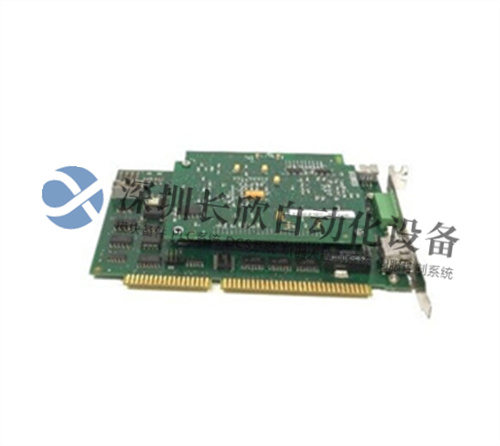
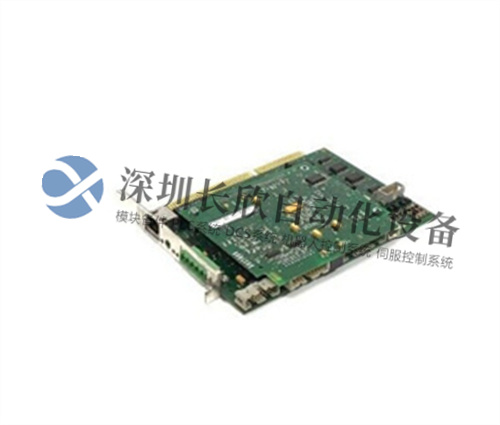
I.Core functions
1.High-precision motion control
Multi-axis synchronous control:
Supports 1-16 axis real-time synchronization,with a synchronization period of≤500μs,suitable for multi-robot collaborative operations(such as dual-robot welding,multi-station handling),ensuring accurate tracking of motion trajectories(such as welding speed of 1.5m/min,trajectory repeatability accuracy±0.05mm).
Built-in electronic cam and electronic gear functions can realize complex motion curve planning(such as cam divider replacement,flying shear control),and reduce mechanical transmission errors.
Dynamic response optimization:
Integrated feedforward compensation and friction compensation algorithms,by real-time adjustment of motor torque,reduce vibration caused by acceleration mutation,suitable for precision assembly,grinding and polishing and other scenes(such as pressure fluctuation≤±0.1N when the mobile phone screen is fitted).
2.High-precision feedback processing
Multi-sensor support:
Compatible with absolute encoders(such as Heidenhain,Sick),incremental encoders and force/torque sensors,it can collect position,speed,acceleration,force/torque data in real time to provide accurate feedback for closed-loop control.
Supports dual encoder feedback(motor end+load end),and eliminates the influence of mechanical clearance and transmission error on accuracy through load position compensation(such as return error compensation of gear transmission system).
Data filtering and processing:
Built-in low-pass filter and Kalman filter can suppress sensor noise and vibration interference to ensure the stability of feedback signals(such as position signal fluctuation≤±0.001mm in high-speed movement).
3.Real-time communication and integration
High-speed industrial communication:
EtherCAT master station:connects KUKA servo drives and external axes,with a synchronization period of≤250μs,and supports distributed control architecture(such as multi-robot collaborative handling of large workpieces).
PROFINET RT/IRT:Collaborative control with Siemens S7-1500 PLC to achieve seamless integration of robots and production lines(such as synchronous movement of robots and conveyor belts in automobile assembly lines).
OPC UA Server/Client:Supports data interaction with MES and ERP systems to achieve real-time monitoring of production status and remote distribution of process parameters.
Open interface support:
Provides C/C++,MATLAB/Simulink interfaces,supports user-defined algorithm development(such as advanced path planning,AI visual integration),and meets personalized control needs.
2.Technical parameters
Parameter category Detailed specifications
Processor Intel Atom x7-E3950(4 cores 1.6GHz,turbo frequency 2.0GHz)
Memory 4GB DDR4(expandable to 16GB)
Storage 128GB SSD(supports RAID 1 redundancy)
Input power 24V DC(-15%/+20%),power consumption≤80W
Control accuracy Position accuracy±0.005mm,speed fluctuation≤±0.03%
Environmental adaptability Working temperature 0-50℃,humidity≤90%RH(non-condensing),protection level IP20
Dimensions and weight Dimensions 250mm×200mm×100mm,weight about 5kg,supports standard cabinet installation or rail installation
3.Typical application scenarios
1.Automobile manufacturing
Body welding production line:
MFC2 controls 2 KR 16 robots+1 positioner,synchronized through EtherCAT Multi-station collaborative welding,welding cycle≤45s/car,weld quality meets ISO 5817 A-level standard.
Integrated force/torque sensor,real-time monitoring of welding pressure,automatic adjustment of robot posture,avoidance of cold welding and over-welding problems.
Assembly workshop:
Cooperating with the visual guidance system,the KR 30 robot is controlled through PROFINET communication to complete the precise assembly of the engine and gearbox,with an assembly force of≤80N and a repeat positioning accuracy of±0.02mm.
2.3C electronics industry
Mobile phone assembly line:
The KR 6 robot is equipped with a vacuum suction cup,which completes the micron-level positioning of the screen and camera module in the MFC2 force control mode,supports multi-model mixed-line production,and the changeover time is≤5 minutes.
Interact with the MES system through OPC UA communication to update the assembly process parameters in real time to ensure production consistency.
Chip detection:
With a high-precision visual system,the KR 3 robot is controlled to quickly identify and sort chip defects,with a detection speed of≥8000 pieces/hour and a false detection rate of≤0.01%.
3.Metal processing
Laser cutting:
MFC2 controls the KR 40 robot equipped with a laser cutting head,and uses the electronic cam function to achieve precise tracking of complex contours,with a cutting speed of≥50m/min and a cut width of≤0.1mm.
Grinding and polishing:
Integrated force/torque sensor to adjust the robot grinding pressure in real time to ensure that the surface roughness Ra≤0.8μm is suitable for high-precision processing of aviation parts and medical devices.
IV.Advantages and characteristics
1.High precision and high reliability
Industrial-grade hardware design:
Adopts fanless cooling,supports 7×24 hours of continuous operation,and MTBF(mean time between failures)≥80,000 hours.
Redundant design:
Supports power redundancy and network redundancy to ensure the continuity of key applications(such as automotive welding).
2.Openness and compatibility
Supports the full range of KUKA robots:
From KR 3(load 3kg)to KR 120(load 120kg),it can be adapted without additional adjustment of control parameters.
Multi-brand sensor compatibility:
Supports Heidenhain,Sick,Renishaw and other mainstream brand encoders to reduce system integration costs.
ABB Model: GBU72 3BHE055094R0002 Model: 3BHE055094R0002 GBU72 Model: GBU72 Model: 3BHE055094R0002 Model: 3BHE031197R0001 Model: 3BHB030310R0001 Model: 73BHE055094R0002 GBU72 Model: 73BHE055094R0002 Model: GBU72 Model: ABB PCS6000 PRODUCT FAMLIY ABB 5SHY4045L0006 3BHB030310R0001 3BHE039203R0101 GVC736CE101

